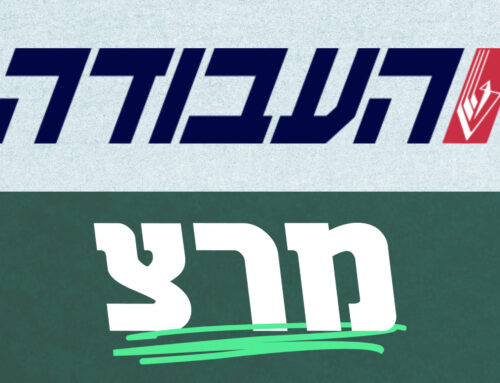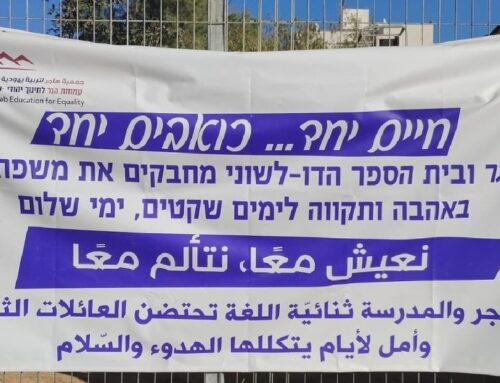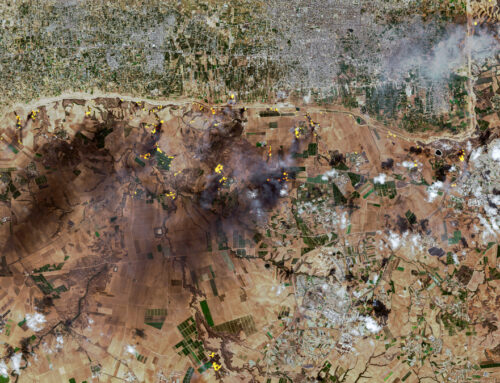Hat tip to our friend, David Eden, for sharing the latest blog post by Eric Lee, “The Putinisation of Israel.” In David’s words, Eric Lee is “a former member of Kibbutz Ein Dor, who wrote the blog BibiWATCH during the first term that Bibi was PM. Now living in London, Eric is the founding editor of LabourStart — the news and campaigning website of the international trade union movement.” The following is excerpted from Eric Lee’s article:
In a sense, not much changed in the Israeli elections of 2015, despite media reports of a “landslide” victory for incumbent Prime Minister Binyamin Netanyahu.
The country is still almost equally divided between Left and Right. The parties of the Zionist Left (Labour and Meretz) have seen their combined vote steadily increase over the last three elections, from just 16 Knesset seats (out of 120) to 21, and now to 29. The voting strength of the Arab parties is larger than ever, with a single united bloc now holding 13 seats, a record result.
The main parties of the Right (Likud, Jewish Home and Avigdor Lieberman’s Yisrael Beitenu) grew by just a single seat, from 43 to 44. The difference though is that while previously Likud held just 18 of those seats, it now holds 30 – and the other two Right parties dropped by 11 seats.
The two ultra-Orthodox parties lost a considerable amount of support, dropping from 18 to 13 seats.
It almost sounds like I’m describing a win for the Left, but of course it will not be the Left forming the government – it will once again be Netanyahu. . . .
So while the Left grew, it did not grow by enough, and things will stay pretty much the same. Except for one thing – Israeli politics changed, and changed for the worse, in this campaign. The change can only be described as the “Putinisation” of Israel.
In the course of an election campaign which saw Netanyahu struggling to survive, and only days before the election facing near-certain defeat, the Israeli Prime Minister used a number of tactics which seemed to have been inspired by the Russian President.
He made an election issue of the role of “foreign money” in Israeli politics and was particularly concerned with “foreign-funded” non-governmental organisations (NGOs). This is not new; the Israeli Right has long been concerned about groups which promote, among other things, human rights for Palestinians. But Netanyahu embraced it, focussing in particular on V15, a non-partisan NGO that campaigned for his defeat. In a post-election interview with MSNBC, Netanyahu continued to allege that “tens of millions” of dollars were spent by shadowy foreign sources to topple him.
This of course has been central to Putin’s rule, and the Russian President has long alleged that any and all democratic revolutions that take place in Russia’s “near abroad” such as Georgia and Ukraine are almost by definition foreign-funded plots. . . .
Putin came to power at a time when Russia was experiencing a flowering of freedom of expression, with a number of independent newspapers and television stations, many of which have since been shut down. Media loyal to the regime dominates and dissident voices are heard only with difficulty. Israel, on the other hand, has long been seen as an oasis of press freedom in the desert of a region dominated by dictatorships of various kinds. Newspapers like Ha’aretz have long played the role of critics of Israeli governments and critical voices could be heard on television and other media as well.
But taking another page from Putin’s book, Netanyahu has tried to clamp down on the Channel 10 television station which was seen as hostile to his rule, and with the financial backing of an American gambling tycoon, funded his own free daily newspaper to rival the established ones which were seen as too critical of his policies. . . . Netanyahu’s supporters were quick to take to the airwaves to protest how the mainstream media covered the Prime Minister with none-too-subtle hints that something needed to be done to reign in excessive criticism of the country’s leader.
Like Putin, Netanyahu’s strong point is that he’s seen as “Mr Security” – someone who will stop at nothing to defend the country. Both Putin and Netanyahu have made much of the Islamist threat, and both have expressed concern that the West doesn’t understand that threat as well as they do. In the case of Putin, it’s the Chechens and their allies in the North Caucasus. In Netanyahu’s case, it’s Iran, Islamic State, Hamas and Hizbollah. Netanyahu campaigned on the issue of the Islamist threat to the exclusion of everything else. . . .
Most shamefully, in the final hours of the campaign, Netanyahu launched a racist tirade against “busloads of Arabs” who dared to vote. He called upon his supporters to rush to the polls, otherwise the Left might come to power. Putin too has encouraged anti-Muslim racism and xenophobia in general as a way of keeping Russians united around his rule. . . .
You can read this entire article by clicking here.






Leave A Comment